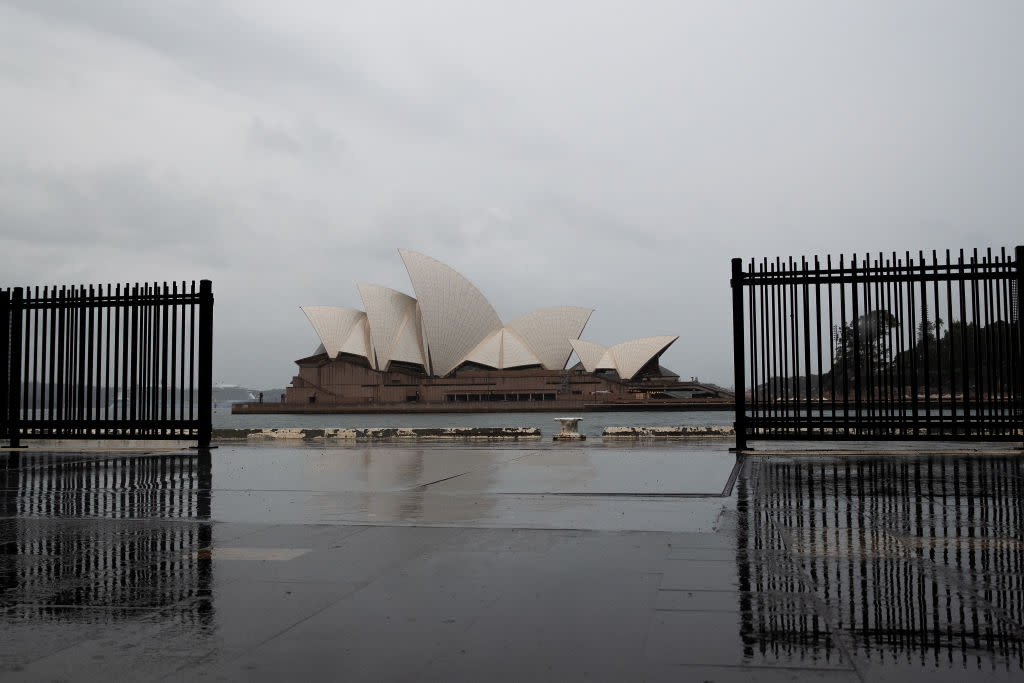'Only the government can do this': The case against small government

If the government thinks it is important to protect the livelihoods of 1 million people made unemployed during the coronavirus crisis, why did it think it is unimportant to act when 10 or 20 people lose their job at other times?
The answer is a blend of anti-big-government zealotry from the Liberal and National Parties on the one hand, and what is a blindingly obvious policy response to a massive health and economic disaster on the other.
Simply put, it is a pity that it took something as horrendous as the coronavirus catastrophe to make so many people realise the importance of government in society.
More from The Kouk: 'Disturbing': Much more government stimulus is needed
More from The Kouk: Australia’s plan to rescue the economy: Too slow, too small
More from The Kouk: Crisis leadership: The high costs of inaction
Government involvement in the economy is good for people, healthcare, jobs, security, small and large business and even financial markets.
This is the remarkably straightforward conclusion when one observes the reaction of governments around the world to the coronavirus. It is the government and not the private sector that is saving lives, preserving people’s health, supporting their financial well-being and keeping many businesses afloat.
The decades-long debates about small government versus big government, about red tape ‘strangling productivity’ and the indomitable power of the private sector to drive the economy were always a ruse for deregulation and allowing the private sector to function with limited constraints.
The ‘small government’ zealots were inevitably against having to pay their fair share of tax, they are against rules to limit the amount of pollution their businesses spew into the air, they are against fair and decent wages and working conditions for employees and they generally want to let the private sector ‘rip’ and worry about any consequences if or when they blow up.
That may sound harsh, but look at the groups that advocates lower company tax scales, less government health funding and are against Medicare?
Look also at who was and is against policies that lower carbon emissions or even rail against increases in minimum wages and have scaled back superannuation contributions for all workers.
The policy response to the coronavirus
Governments are protecting lives with their reactions to the health and economic crisis that the coronavirus has unleashed on the world.
Can you imagine a private sector company being able to provide a wage subsidy? Free childcare? Stopping people being evicted from their homes? Hospitalising, checking and looking after people who have the symptoms of coronavirus and doing it for free?
It’s laughable in the extreme to contemplate such a scenario.
Only the government can do these things.
In Australia, we are even seeing the conservative Morrison government capitulate on its small government, zero debt and lower red tape zealotry.
The measures it has introduced to date are significant and very welcome.
While the policy approach from Mr Morrison has been solid, it is impossible to imagine any government of any persuasion doing anything less than we have seen.
The fact that every government in the industrialised world has provided massive economic stimulus in areas never before seen shows how obvious such policy action has been.
In Australia, other Prime Ministers unconstrained by the burden of their small government zealotry would no doubt have done an even better job than Mr Morrison with their economic policy response. They wold have delivered an earlier, a bigger, and even better targeted array of temporary policy actions.
Life after the coronavirus
A lot is being written how the economy and society will look after the coronavirus health crisis has passed.
For Australia, it is unlikely that from a policy perspective, much will change at all.
Just two months ago, the government was crowing about the budget being “back in the black”. Treasurer Josh Frydenberg was rubbishing the notion of a wellbeing budget, one that took account of broadly defined individual living standards and the environment and not just the level of tax and whether the budget was in surplus or not.
During the crisis, several right wing extremist groups, especially the Institute of Public Affairs who are the feeder organisation for candidates for the Liberal and National Parties, have been bemoaning the surge in government action during this crisis.
They don’t even want the health crisis address via an “economy destroying lockdown”.
No doubt these groups and their ilk will try to reassert their increasingly compromised authority when the crisis is over and we are heading back to restaurants, sporting venues, concerts and shows.
It is to be hoped these people are drowned out by those in society who are grateful for the role of government in the crisis and thank government for keep them in a job, in their house and in good health.
Next time you hear someone bemoaning ‘big government’, point out how the government sector has saved lives, supported societal well-being and provided huge support to the private sector during the coronavirus crisis.
After you do that, contemptuously laugh at them for being ignorant and pig-headed with their small government zealotry.
Make your money work with Yahoo Finance’s daily newsletter. Sign up here and stay on top of the latest money, news and tech news.
Follow Yahoo Finance Australia on Facebook, Twitter, Instagram and LinkedIn.


